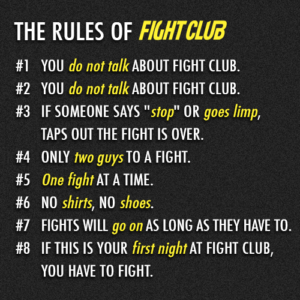I work in an industry where I’ve been told for a decade technology is going to take my job. The staffing industry is half a trillion-dollar industry worldwide. The entire industry is built on us banking on the fact that someone in corporate TA is going to be lazy.
Ouch! That should sting a little!
So, I don’t really bank on you being lazy at my company. We do contract work so we are looking to fill contingent roles, not direct hire staffing, which is an industry almost completely built on lazy! For my staffing brothers and sisters out there, I hear you, I know you’re ‘just’ filling in when ‘capacity’ is an issue. (wink, head nod, wink)
There are other industries that bank you us being lazy. The entire diet industry! You’ve got overpriced awful foods, bars, shakes, workout gyms, at home gyms, etc. Because we won’t eat less and move more, because we are “lazy”, we pay a lot for that! Believe me, I pay my fair share! Just because I’m too lazy! Ugh, it’s embarrassing!
Direct hire staffing as an industry could be gone tomorrow if corporate TA just did what they were hired to do. You have an opening, you fill the opening. We aren’t trying to put a woman on the moon! This isn’t rocket science!
But, we don’t fill the opening. In fact, we do just about everything except filling the opening. We post the opening. We meet about the opening. We send whoever applies to the manager of the opening. We meet some more about candidate experience. We have another meeting about employment branding. One more meeting with the manager to see if anything has changed.
That doesn’t sound lazy, does it?
But, deflection of more difficult work is just another form of laziness.
My kid doesn’t want to go out in 90-degree heat and mow the lawn. It’s a hard, hot job. So, they come up with ‘alternative’ work that they have to do that just happens to be inside in the air conditioning.
As TA Leaders, we have to understand how are others are banking on us being lazy, and then make adjustments to stop lazy. So, how do you do that?
Well, I wrote an entire book on the subject – The Talent Fix – you can buy it here – but until you can get it, here are some tips:
- Have clearly defined measurable activity goals set for each member of your TA team.
- Make those measures transparent so everyone can see them every day.
- Have performance conversations immediately when measures aren’t met.
- Course correct as measures need to be adjusted to meet the needs of the business.
- Rinse, repeat.
1 -5 above is like page 37 of the book. So, you can imagine what the rest of the 200+ pages will be like! 😉
If you follow the five steps above about half of your team will quit in 90 days. That’s a good thing, those idiots didn’t want to recruit, to begin with, they just wanted that fat corporate check and Taco Tuesdays. They were being lazy and it was costing your corporate bottom line.
The talent acquisition function is not a charity case. I think in the history of HR we’ve done some corporate charity where we let people keep collecting money even though they were costing us money. They weren’t giving back the value we needed for what we were paying. Great leaders stop this from happening.
Great leaders understand that there are people in the world that are banking on us being lazy.


